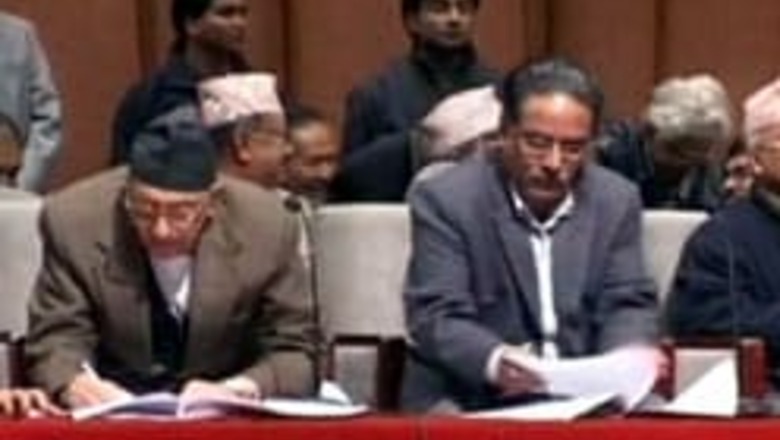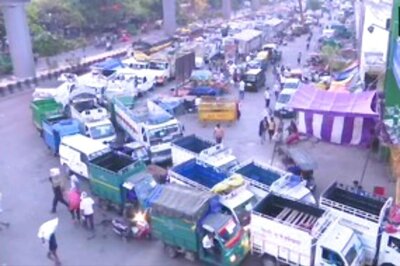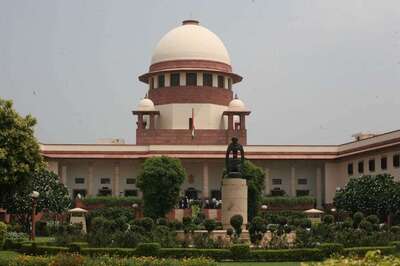
views
Nepal: Maoist leaders and Nepal's ruling parties agreed on Friday to postpone upcoming elections in the Himalayan nation, a move that ends one electoral crisis but still leaves the two sides deadlocked over a series of political issues.
It was not clear when a new date would be set for the elections to choose the Constituent Assembly, which will be charged with rewriting Nepal's constitution and shaping the country's political future.
''We have been let down by the Maoists. We are compelled to make changes to the election only because of them,'' Peace and Reconstruction Minister Ram Chandra Poudel told The Associated Press. ''All the parties in the government were ready to face the elections.''
The Assembly elections, which had been scheduled for November 22, were a major part of the peace agreement that ended the Maoists' decade-long war and brought them into politics.
But a crisis erupted after the Maoists quit the government last month, insisting the ruling alliance agree to demands including the immediate abolition of the monarchy and procedural changes to the elections. They have threatened to launch widespread street protests if their demands are not met.
Last week, the Nepali Congress, the country's leading party, announced its support for declaring the country a republic, moving the government closer to abolishing the monarchy that ruled for centuries. The king remains on the throne, but was stripped of nearly all his power last year in the wake of massive street protests.
But the ex-rebels also insist the Constituent Assembly elections be based entirely on proportional representation, where voters cast ballots for political parties, which in turn appoint members to the Assembly.
Earlier this year, they agreed to a mixed election system, where half the assembly members would be chosen through proportional representation, with the other half directly elected by the public.
Most analysts believe the Maoists want a proportional election because they have few leaders with enough stature to earn many votes in a direct election.
The government, though, opposes an election based solely on proportional voting.
Nepal, which came to the brink of chaos last year before the king gave up power, again plunged into political crisis last month after the Maoists' pulled out of the government and announced plans to disrupt the assembly elections.
The Maoists, who fought a decade-long armed insurgency to abolish the monarchy, signed a peace agreement in 2006 and joined the government earlier this year. More than 13,000 people were killed in the fighting.



















Comments
0 comment